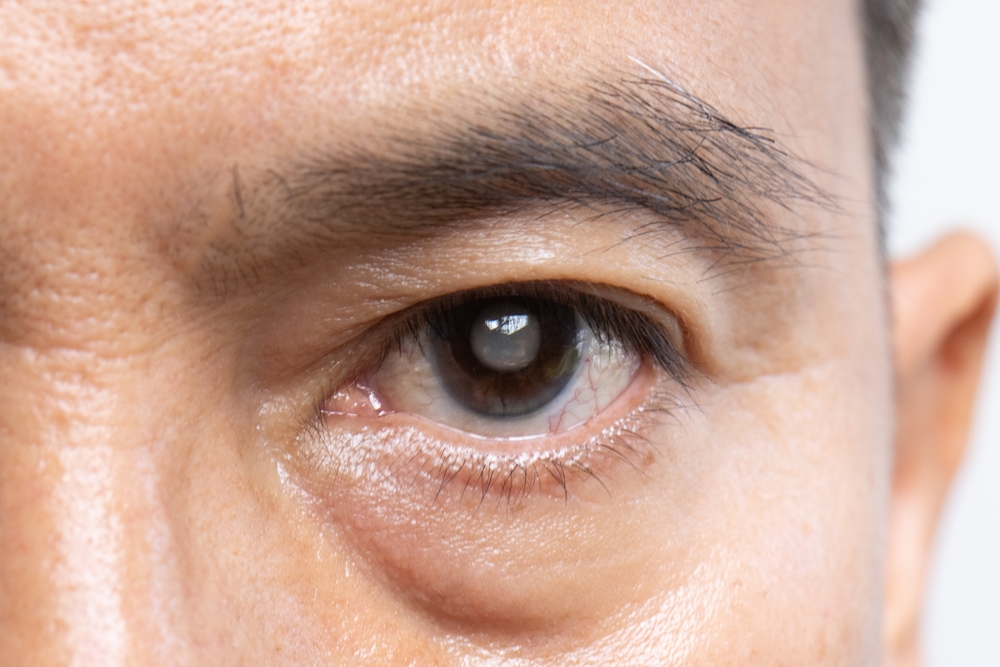Posted by: Focal Point Vision in Blog

Cataract surgery is a safe procedure and is the only way to reverse the vision changes caused by cataracts. The procedure itself is quick and causes minimal discomfort.
Most people find that recovery from cataract surgery is smooth, and they can resume their normal activities within a few days. Keep reading to learn more about what to expect during recovery from cataract surgery!
What Happens During Cataract Surgery?
Cataract surgery is an outpatient procedure, which means you will be able to go home on the same day. You will be awake but comfortable during cataract surgery.

Your eye doctor will apply numbing drops to your eyes so you won’t feel discomfort. The purpose of cataract surgery is to remove the clouded lens of the eye and replace it with a clear artificial lens called an intraocular implant (IOL).
During the procedure, your eye doctor will use specialized tools to make a small incision in the eye. They will then break up the lens and remove it completely.
After that, they place an IOL into the pouch where the natural lens used to sit. The tiny incision in the front of your eye will heal naturally without stitches. The whole process takes about twenty minutes.
Because the IOL is perfectly clear, any vision changes you had due to cataracts will be greatly improved. IOLs can correct other vision issues, like refractive errors.
You can choose an IOL that helps with common refraction errors such as farsightedness or astigmatism. If you choose a premium IOL, you may find that you don’t need to rely on glasses or contacts as much after cataract surgery.
Recovering from Cataract Surgery
The recovery from cataract surgery is usually uncomplicated, but you should expect to give your eyes several weeks to fully heal. The recovery process is very important.
Caring for your eyes properly after the procedure will reduce your risk of infection or other complications. After the cataract surgery procedure is complete, your eye doctor will let you relax in the office for a while.
During this time, staff will monitor your eyes to make sure there is no unusual swelling. You can go home once your eye doctor says you’re ready to leave.
You will not be allowed to drive since your vision might be blurry as it adjusts to the new lens. You should arrange for a friend or family member to give you a ride to and from the procedure.

You will need to wear an eye shield for the rest of the day and overnight for several days after the procedure. The shield prevents you from touching or rubbing your eye, particularly when you are asleep, and may inadvertently irritate it.
Your eye doctor will prescribe eye drops to prevent infection. You will need to use them as directed.
Your eyes may feel sore or gritty for a day or two. If your eyes feel up to it, you can read, watch TV, and use a computer after cataract surgery.
Take a break to rest your eyes, especially if they start to feel tired or strained. You may be extra sensitive to glare after cataract surgery, so you should wear sunglasses when you go outdoors.
You can bathe or shower normally, but avoid getting water, soap, or shampoo in your eyes.
What Activities Should I Avoid During Cataract Surgery Recovery?
Your doctor will give you a list of activities you should avoid for a period of time after cataract surgery, which may include:
- Driving
- Swimming
- Exercise
- Bending over
- Lifting heavy objects
- Touching or rubbing your eye
- Wearing eye makeup
You will have a follow-up appointment the day after cataract surgery so your eye doctor can check how your eyes are healing. You will need to have a friend or loved one give you a ride to that appointment.
During that appointment, you can ask for guidance on when you can start returning to activities like driving, exercising, or working.
What Are The Side Effects From Cataract Surgery?

Some people experience side effects in the first few days after cataract surgery. You might notice:
- Redness
- Soreness or grittiness
- Watery eyes
- Blurry vision
- Double vision
The discomfort is normal, and it should get better within a couple of days. You can call your eye doctor if you are concerned about how your eyes feel.
Many people notice an improvement in their vision within a few days after cataract surgery. However, for some people, it can take a few weeks to experience the full clarity of their new vision.
What Are Secondary Cataracts?
There is a chance that you may develop a condition called posterior capsular opacification (PCO), which is sometimes called secondary cataracts. Instead of clouding the lens, the tissue around your IOL becomes discolored.
Your eye doctor can restore your clear vision by using a laser to make a tiny opening in the tissue around the lens. It takes less than five minutes, and results are immediate.
Do you want to learn more about cataract surgery? Schedule an appointment at Focal Point Vision in San Antonio, TX, today!
